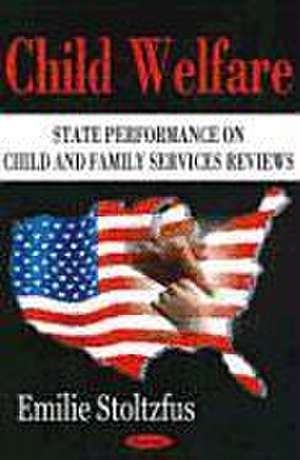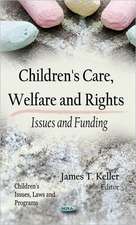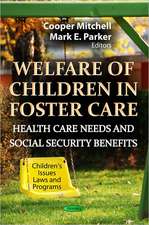Child Welfare
Autor Emilie Stoltzfusen Limba Engleză Paperback – 17 sep 2006
Preț: 378.44 lei
Preț vechi: 512.22 lei
-26% Nou
Puncte Express: 568
Preț estimativ în valută:
72.41€ • 75.81$ • 59.92£
72.41€ • 75.81$ • 59.92£
Carte disponibilă
Livrare economică 15-29 martie
Preluare comenzi: 021 569.72.76
Specificații
ISBN-13: 9781594547812
ISBN-10: 1594547815
Pagini: 102
Ilustrații: tables
Dimensiuni: 140 x 213 x 7 mm
Greutate: 0.18 kg
Editura: Nova Science Publishers Inc
ISBN-10: 1594547815
Pagini: 102
Ilustrații: tables
Dimensiuni: 140 x 213 x 7 mm
Greutate: 0.18 kg
Editura: Nova Science Publishers Inc
Cuprins
Preface; Introduction; How Is a CFSR Conducted and What Is Assessed?; Aggregate State Performance on Outcomes in the Initial CFSR; State Performace By outcome; State System Performance in the Initial CFSR; A Closer Look at the Weaknesses Identified by the CFSR; Assessing Penalties; Did the Initial CFSR Accurately Measure State Performance?; The Next Round of CFSRs; Index.













